Breadcrumb
News archives
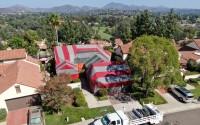
California Leads U.S. Emissions of Little-known Greenhouse Gas
State emits more than rest of country combined, new study finds

Global Warming Is Influencing Global Timekeeping
One consequence is giving society a few extra years to prepare for a potential Y2K-style glitch
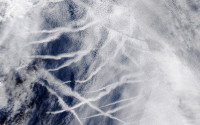
How To Determine if a Potential Geoengineering Strategy Could Work?
Scientists detail research needed to assess viability, risks of marine cloud brightening
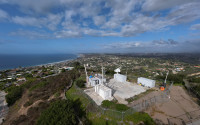
EPCAPE Observations at Scripps Pier, Mt. Soledad Wrap Up
Marine cloud-aerosol campaign now enters a phase of energetic data analysis
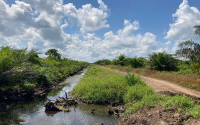
Canals Used to Drain Peatlands Are Underappreciated Hotspots for Carbon Emissions
The study found that one-third of the organic carbon leached from peatland soils into canal waters gets broken down and released into the atmosphere as carbon dioxide
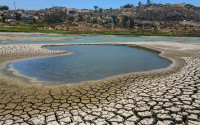
Study: Projected Changes in Extreme Precipitation Over Northern Mexico
Study finds that this understudied region may experience significant climate changes, impacting agriculture, the economy and infrastructure
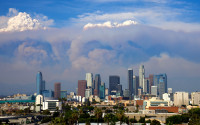
Extreme Heat, Wildfires Combine to Disproportionately Harm Less Affluent and Communities of Color
California ZIP code-scale survey exposes need for rethinking of public policy, say researchers
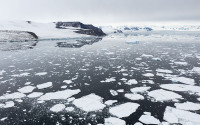
New Paper Pinpoints Key Role of NASA Satellites in Monitoring Earth's Vital Signs
All-woman team of researchers shows how 20 years of laser-based observations have improved our understanding of a changing planet
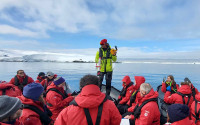
Scripps Scientists Journey to Antarctica to Study Key Climate Questions and More
Scripps Oceanography researchers are investigating Earth’s climate history, ice loss, phytoplankton, and marine food webs this field season
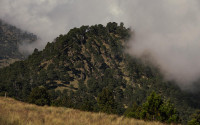
Ecosystem Benefits to Humanity Expected to Decline by Nine Percent by 2100
Nature’s Benefits to Decrease as Climate Change Shifts Ecosystems Across Borders
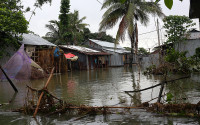
Three Decades of Data In Bangladesh Show Elevated Risk of Infant Mortality In Flood-Prone Areas
The findings reveal the long term public health burden of environmental hazards that are predicted to worsen under climate change

Scripps Oceanography Celebrates Seaweed Diversity in California
The Center for Marine Biodiversity and Conservation at Scripps hosts Seaweed Speakeasy as part of the 2023 California Seaweed Festival
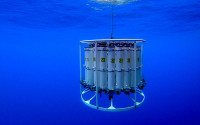
Scientists Publish 37-Year Record of Ocean Acidification off Southern California
The longest ocean time series of dissolved carbon dioxide in the Pacific — part of the “Keeling Curve of the ocean” — is revealed
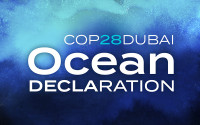
Ocean Pavilion Partners Unveil COP28 Dubai Ocean Declaration in Advance of UN Climate Conference
Declaration recognizes the critical role of the ocean in regulating climate change, calls for increased ocean observations

Atmospheric River Reconnaissance Flights Begin
On the heels of an exceptionally wet year, an expanded data collection program using Air Force and NOAA aircraft will begin flights over the Pacific from November through March

UC San Diego Delegation to Attend Annual UN Climate Conference in Dubai
Meet the students and faculty from Scripps Institution of Oceanography and School of Global Policy and Strategy who are headed to COP28
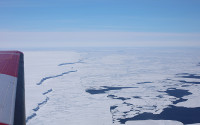
Meltwater Flowing Beneath Antarctic Glaciers May Be Accelerating Their Retreat
Simulations showed that this process accelerated sea-level rise by 15% by 2300, suggesting it should be factored into future projections
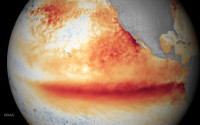
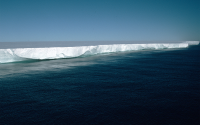
Antarctica’s Floating Boundary Moves up to Nine Miles with the Tide
Satellite reveals back-and-forth movement of the boundary between Antarctica’s grounded ice sheet and floating ice shelf

Improved Model of the Carbon Cycle Can Help Verify Reported Emissions
Model reduces uncertainty on contributions of land-based ecosystems to atmospheric CO2 concentrations
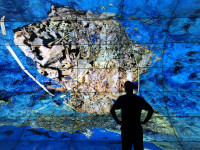
UNESCO Recognizes International Team for Sustainable Underwater Archaeology Efforts
UC San Diego researchers and Mexican colleagues lauded for work on the Yucatán Peninsula

Warming Is Shifting Napa’s Wine Growing Season
Higher temperatures have advanced the wine grape growing season nearly a month earlier compared to the 1950s
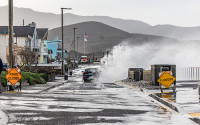
California’s Winter Waves May Be Increasing Under Climate Change
New research used 90 years of seismic data to infer wave heights, creating an unprecedented record of the waves that have pounded California’s coast

Scripps Researchers to Explore Deep-Sea Methane Seeps in Alvin Submersible
Expedition hopes to better understand how far the chemicals from seeps spread underwater, and which organisms can utilize them as a food source

New Measurements Suggest Tropical Cyclones May Influence Global Climate
Scripps researchers find that tropical cyclones cause deeper and longer lasting ocean warming than previously thought, setting the stage for unexpected and far reaching implications
Pagination
Sign Up For
Explorations Now
explorations now is the free award-winning digital science magazine from Scripps Institution of Oceanography. Join subscribers from around the world and keep up on our cutting-edge research.